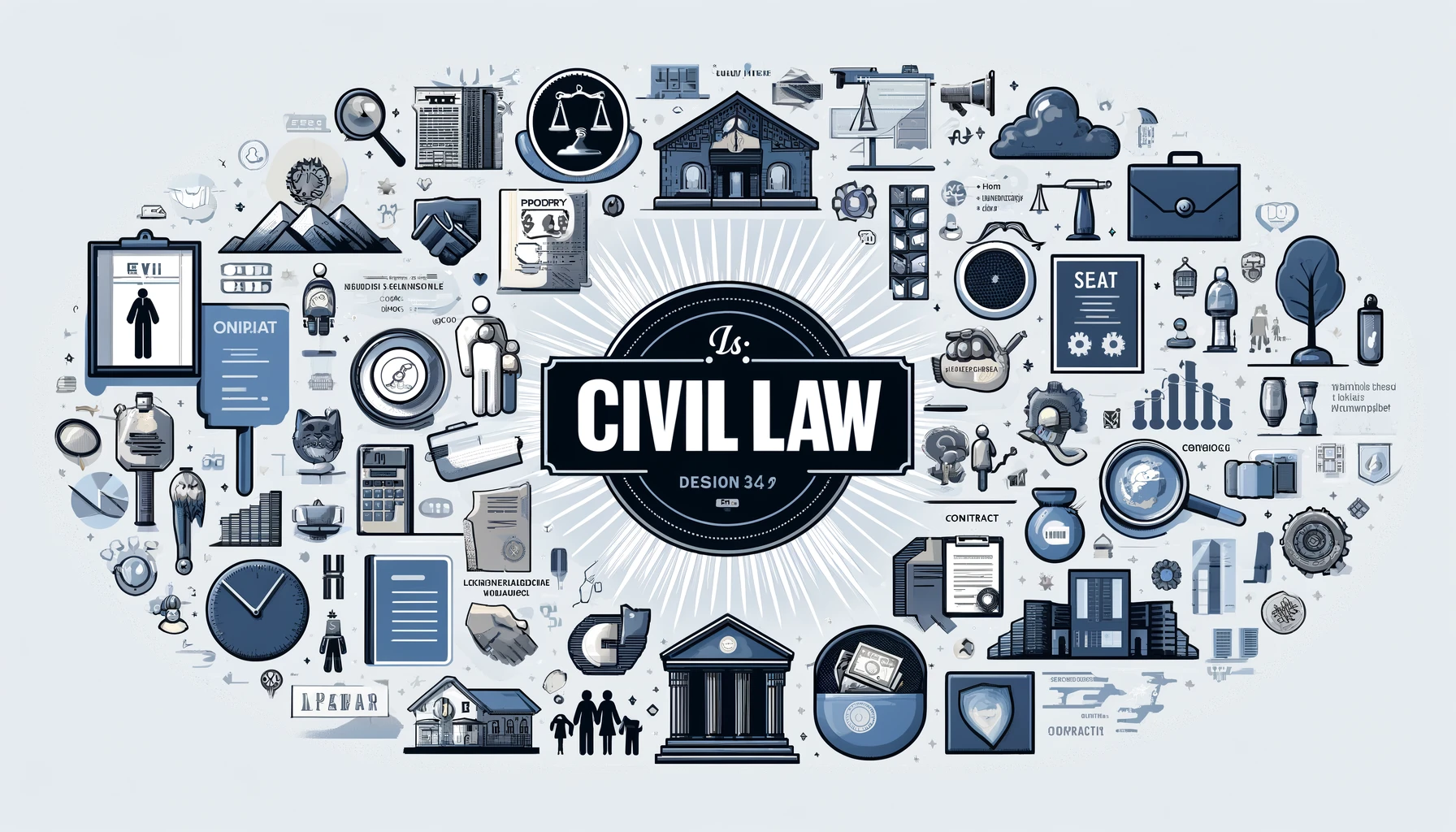We often hear the term civil law and even in our daily lives we carry out activities within the scope of civil law, such as when buying and selling, making agreements, and all other personal relationships. So what is civil law and what is the scope of civil law? To find out, let’s read the explanation below.
Definition of Civil Law
Civil law is the law that regulates relationships between individuals in society. The word civil law in its broadest sense encompasses all material private law and can be said to be the opposite of criminal law.
Some people also use the term civil law for this material private law, but the term civil is also in conflict with the military, so it is more common to use the name Perdata alone, for all material private law regulations.
In addition to the definition of civil law mentioned above, several experts also expressed different opinions, among others:
- Subekti S.H., Civil Law is the main law that regulates individual interests.
- Soediman Kartohadiprodjo, S.H., Civil Law is all legal regulations that determine and regulate civil rights and obligations.
- Sudikno Mertokusumo, S.H., Civil Law is a law between individuals that regulates the rights and obligations of one individual towards another in family and community relations. R Wirjono Prodjodikoro, S.H., Civil Law is a series of laws between people or legal entities with one another regarding rights and obligations.
- H.F.A Vollmar, civil law is the rules or norms that provide restrictions and therefore provide protection for the interests of one person and another in a particular society (eg the Netherlands), especially those concerning family relations and traffic relations. Civil law is also called civil law or private law.
- L.J. Van Apeldoorn, Civil Law is a law that contains legal regulations whose object is special interests and whose problems will be maintained or not, left to those concerned.
Based on several expert opinions regarding the definition of civil law above, it can be concluded that civil law is a law that regulates the legal relationship between the rights and obligations of one person / legal entity and another person / legal entity in the association of community life, with an emphasis on the interests of individuals.
Scope of Civil Law
There are 2 (two) scopes of civil law, namely civil law in a broad sense and civil law in a narrow sense. The following below explains the two scopes of civil law.
Civil Law in the Broadest Meaning
Civil law in the broadest sense includes all regulations contained in the Civil Code, KUHD and other supplementary laws (such as Agrarian Law, Customary Law, Islamic Law, and Labor Law).
Civil Law in the Narrow Sense
Civil law in the narrow sense includes all the regulations contained in the Civil Code, namely: Personal Law, Law of Objects (Property Law), Family Law, Inheritance Law, Binding Law as well as the Law of Evidence and Expiration.
| Scope | Narrow Civil Law | Broad Civil Law |
|---|---|---|
| Definition | - Only regulates legal relations between civil law subjects (persons and legal entities). - Private and individual in nature. | - Covers relations between subjects of civil law and legal relations with the state. - Includes private and public aspects. |
| Example | - Sale and purchase agreement - Marriage - Inheritance | - Unlawful acts - Property rights - Consumer protection - Business competition |
| Source of Law | - Kitab Undang-Undang Hukum Perdata (KUHPerdata) - Law No. 8/1999 on Consumer Protection - Law No. 5/1999 on Anti Monopoly and Unfair Business Competition | - Civil Code - Law No. 32 of 2009 on Environmental Protection and Management - Law No. 14 of 2001 on Patents |
| Characteristics | - Static: the rule of law is written and standardized. - Casuistic: the rule of law regulates case by case. | - Dynamic: the rule of law evolves with the needs of society. - Non-casuistic: the rule of law regulates general principles. |
Based on the explanation above, it can be concluded that this Civil Law can be in written form, such as those contained and regulated in the Civil Code and KUHD, as well as other laws and regulations, and can also be unwritten, such as Customary Law.
How about after listening to the explanation of the definition and scope of civil law above? I hope the above explanation can be useful. Read also the article on Overlapping Confiscation of Bankruptcy Boedel under the Bankruptcy and PKPU Law with the Criminal Procedure Code (KUHAP) which discusses the overlapping regulations regarding confiscation of bankruptcy boedel in the Bankruptcy and PKPU Law with the Criminal Procedure Code (KUHAP).
That is an explanation of the Definition of Civil Law and the Scope of Civil Law.
Visit the Indonesian Legal Literacy page and follow @literasihukumcom on Instagram to upgrade your legal knowledge!







